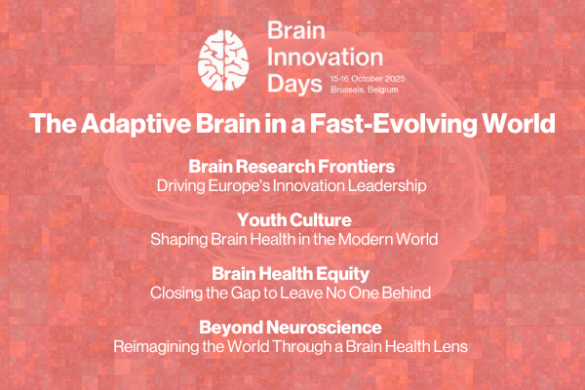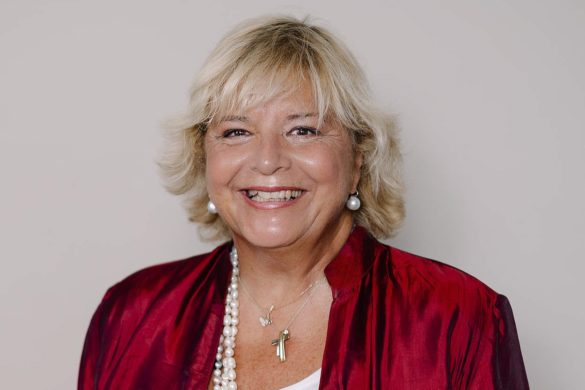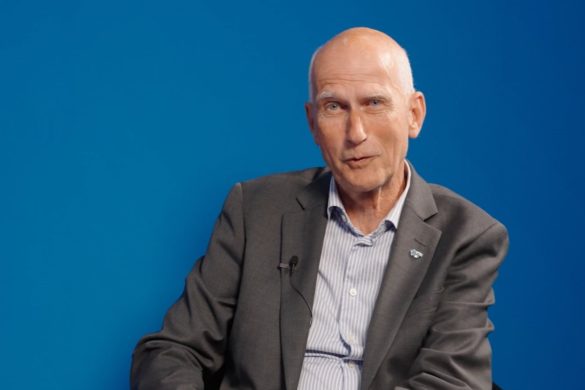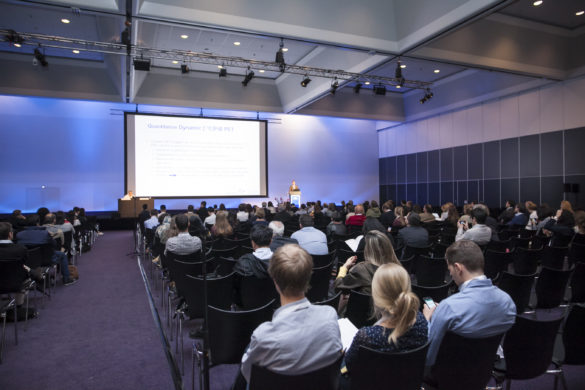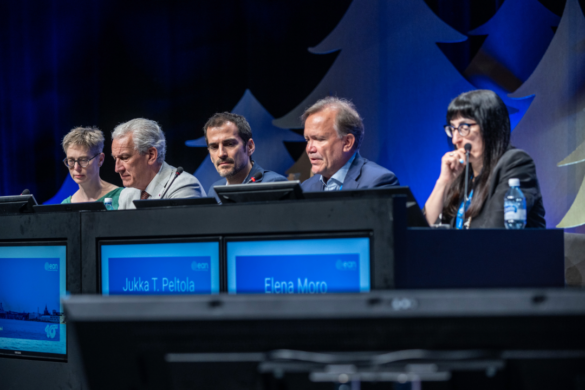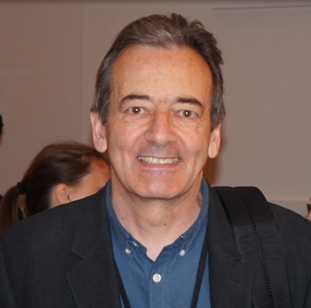This joint Special Session between EAN and the World Federation of Neurology (WFN) was a follow-up of the European Brain Health Summit, which took place on 31 May, 2022. The session followed neurologists’ perspectives from an international point of view and was chaired by Prof. Paul Boon, EAN President-Elect, and Prof. Wolfgang Grisold, President of the WFN.
The first lecture was a presentation of the EAN Brain Health Strategy, by current EAN President, Prof. Claudio Bassetti. He opened the session with the words “Why do we need to speak about Brain Health? I will show you this video, so you understand why”:
Bassetti then explained that the most commonly used definition for brain health is the one by WHO, because it is focused on people, rather than diseases, and across the course of life, not on the late stages of life. He underlined the importance of brain health as there is a high and even increasing burden of neurological disorders, and low awareness about neurological diseases and brain health in general. There are no dedicated policies and budgets for neurological disorders in most countries and together with an insufficient neurological workforce, this causes more problems. There is very limited research funding and unfortunately significant stigma or even discrimination of patients.
All the above listed reasons, continued Bassetti, call for a holistic approach. This abstract term was then explained as a non-disease and non-age centred approach. Bassetti also stressed the importance and overlap between brain health and mental health. At the end of his talk, he recommended to further work on developing the science surrounding the measurement of brain health, as it is completely new and still requires a lot of work.
Prof. Wolfgang Grisold, WFB President, continued with a global outlook on brain health in his lecture titled ‘World Brain Health’. He accentuated that ‘Brain health for all’ should be widely used as a motto, but despite a lot of ongoing discussion, there is no unanimity in defining brain health. For Grisold, this is the connection between healthy brain and mental health. Grisold also underlined the importance of a holistic approach, which goes hand in hand with EAN’s Brain Health Strategy. Talking about brain health, we have to realise that there are some factors, which we cannot influence – such as age, genetic diseases, trauma, mental illnesses or mindset, but plenty of factors can be impacted – socio-economic, access to care, equity, out-of-pocket and catastrophic household expenses, development of neurology, research. The role of stigma is also important, whether disease related or age-related.
‘If we implement our thoughts into people, we also need to be aware of the immersion into a certain culture’ said Grisold. He then pointed out the role of migration and displacement as destabilising factors. As a materialisation of this, WFN is going to celebrate World Brain Day on 22 July, 2022.
Dr. Vladimir Hachinski’s talk was on the topic ‘Is there a final definition of brain health?’. His insightful presentation kicked off with a statement that words make a difference: “When I use a word, it means just what I choose it to mean – neither more nor less,” he quoted from Lewis Carroll’s Alice in Wonderland. He then turned this allegory into neurological terms – strokes are not accidents, but treatable and preventable catastrophes. For Hachinski, brain health means to foster quality neurology and brain health. Tying in with previous talks, brain health and mental health imply two sides of the same coin. All words are common, but not their combinations, which can be defined anew.
Hachinski suggested to use a three-level approach: the dictionary-like definition (when thinking feeling and socialising are the best they can be); and the scientific definition (a state of optimal cognitive, mental and social function and well-being), customised depending on the purpose. And what about final definition? No, thank you. Hachinski calls for a dynamic and responsive definition which can be revised with time.
Dr. Augustina Charway-Felli, President of the African Academy of Neurology (AFAN) commenced her presentation ‘Brain Health in Africa’ with a strong, but very true statement that everyone is a stakeholder in brain health on this planet. Her thought-provoking presentation also encompassed the statement that neurologists are on the wrong side of the equation – people reach them only when things go wrong.
Past EAN RRFS representative, Vanessa Carvalho’s presentation brought a young neurologist’s opinion into the debate. She asked ‘what does Brain Health mean for young neurologists?’ A recently conducted study between RRFS and EAN aimed to investigate the duration and content of neurology training. It found that only six out of 32 countries have mandatory rotations in rehabilitation and that the duration of residency in most countries is very short. She concluded her talk with the findings that even though there is some awareness of brain health, conditions for junior doctors are often not very favourable. “Take care of your brain health and of your residents!” she concluded.
Dr. Matilde Leonardi concluded the session with an impressive tour of the historical perspective of the perception of neurology and brain health. The recently adopted iGAP is a critical milestone in neurology revolution, as she reiterated.
Joint efforts seem to be the only way forward for an effective and holistic approach to brain health, which is a term popular among the wider public, although there is very little common knowledge about it.




